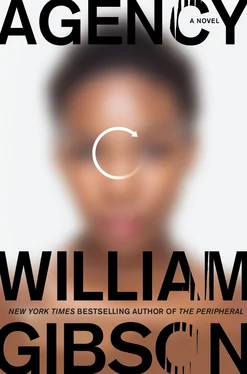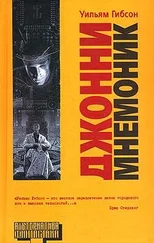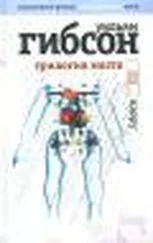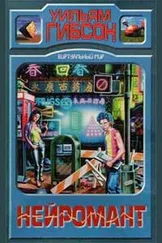Fearing had placed her pistol, and the candelabra, on the square, glass-topped, thoroughly non-period-correct table at which the three of them now sat.
Netherton had seen her younger self shoot someone dead, with a gun like this, in the county. Possibly, he supposed, this very gun. Not that he’d been physically present, of course, hence in no danger, but he knew what these things could do. And was himself, now, physically present. She’d placed it, he noted, so that its muzzle pointed at none of them.
“I gather,” said Lowbeer, whose top hat was also on the table, “that your greeting us with a handgun is indicative of some concern.”
“Making sure it was you. Anybody can look like anybody. Not that I don’t enjoy imagining overreacting, if it happened not to be you.”
“Does this one have the switch for full automatic?” Netherton asked, having learned this one distinction about firearms in the county.
“Double taps or nothing,” said Fearing, dismissively. “Sequential doubles, if you got the customers for them.”
“So this sanguinary mood of yours, Clovis, is the result of your having made those inquiries for me?”
“Sure is,” Fearing said.
None of which encouraged Netherton, as the inquiries he’d hoped Fearing had been making would have been about whatever project had created Eunice, and thus safely in the past.
He looked up at the wall of crates behind her, many of them apparently of wood. This room, or rather space, was at the far end of the passage she’d directed them down, and built of similar containers. He’d never given any thought to what private interiors might be like, in Cheapside. To judge by this one, rigorous period accuracy wasn’t an issue. While some of the crates were wooden, others were of tin, aluminum, and various kinds of plastic. The ceiling was lost to darkness, though light from the uneven pulsing of the candelabra suggested there might be a central plaster rosette overhead.
“It isn’t Lev’s great-uncle,” Fearing said.
“What isn’t?” Netherton asked.
“The source,” said Lowbeer, “the irritant. Do you have an idea who that might be, Clovis?”
“Have you considered Yunevich?” Fearing asked, briefly exposing a narrow radius of her extremely white teeth, the name meaning nothing at all to Netherton.
Without the top hat, Lowbeer looked more herself, which was to say dangerous. “I thought it possible,” she said. “Are you certain?”
“Essentially, yes. Which is why you’ve Wilf along, to hear the name. He’ll need to ask Zubov in person, in a secure situation.”
“He has a troupe of dancing girls,” Netherton said. “Bots, I mean. Lev does. Zero connectivity, no onboard memory.”
“We weren’t able to penetrate them when I observed Wilf’s meeting with Lev at the Denisovan Embassy,” said Lowbeer.
“Where’d Lev find them?” Fearing asked.
“They’re his father’s,” Netherton said.
“His father’s old klept,” said Fearing, “his father’s uncle’s older klept still. They assume their opsec is gold standard, which in practice tends to mean it’s not. They mainly spy on each other.”
“Why wouldn’t Lev simply have told me who it was, if they know?” Netherton asked.
“He doesn’t, yet,” said Lowbeer. “Neither does the father. This is all a bit of klept protocol. They bring us word of a conspiracy. We determine that one exists. Only then do we ask them if those we suspect of conspiring are those they intended to alert us to. The key conspirator’s name will have been passed along to Lev, just prior to meeting with you, enabling him to answer when you speak it to him.”
“Yune—” Netherton began, but Lowbeer kicked his shin before he could finish, beneath the glass table, causing him to almost drop the walking stick, which he’d been holding across his thighs.
“Do not voice the name,” said Lowbeer, “until you’re alone with Lev.”
“We aren’t secure, here?” Netherton asked, wincing.
“Until the situation’s resolved,” Lowbeer said, “observe that extra degree of discipline. It isn’t that you’re particularly open, quite the contrary, but you also have a tendency to forget yourself when excited.”
“Very well,” Netherton said, resisting the urge to rub his aching shin, “what exactly do you need me to do?”
“Contact Lev,” said Lowbeer, “meet him, with his troupe deployed. Ask him if said individual is in fact involved. I’ll debrief you afterward, in the car.”
“Tonight? I’m quite short on sleep.”
“Lev himself is currently asleep,” said Lowbeer, as if it were perfectly normal for her to know this, as Netherton in fact assumed it might well be. “Phone him in the morning.”
Over the drone’s shoulders, through the tinted window, Verity watched two men, Japanese, smoking cigarettes behind the hipster supermarket.
In white t-shirts, pants, aprons, they sat on red plastic milk crates, like the one she’d clumsily stepped up on, wearing the silicosis bootees, to enter Virgil’s truck.
Was it legal, to smoke cigarettes this close to a supermarket? Were they too near a food preparation area? She was thinking about asking them for one, even though she’d never before smoked one, after Rainey had finished telling them about the jackpot.
They’d all sat there, in the van, saying nothing, with Sevrin methodically finishing his fries. Virgil, Verity knew, had already heard at least some of this from Conner. She looked over at him now. He’d just opened a brown glass bottle of ginger beer. His eyes met hers. “I know,” he said, “right?”
“Sorry,” Rainey said. “I really am. I understand that it’s too much, all at once. I’ve never told anyone before, who didn’t know. Wilf and Ash have. I wish it had been them.”
“Did we ever come to terms with the sheer cluelessness of it?” Verity asked. “The knowing, for decades, and then managing to do almost nothing to stop it?”
“Not really,” said Rainey. “But it isn’t as if people in your era get all the blame. It began with the use of fossil fuels, in what amounted to a centuries-long event. And it isn’t as if we assume it’s over. We’re barely getting by, as it is, using the shards, or using assemblers as pollinators, and everything else we use them for.”
“Assemblers?” Virgil asked.
“Molecular assemblers. Nanotechnology.”
“I thought that was supposed to change everything,” Verity said. “The singularity?”
“We were in our real singularity all along,” Rainey said. “We just didn’t know it. When relatively functional nanotech did arrive, we used that to blunt some effects, slow things down. Trying anything on a larger scale has increasingly been deemed too big a gamble.”
The two smokers were stubbing out their cigarettes now, getting up, brushing their hands on their aprons, their break over, centuries into the singularity they might never recognize as such.
Virgil passed her the ginger beer. She drank reflexively, not tasting it. “So what you’re trying to do, here, with us, is change that?”
“To mitigate the effects, here. You’re further back than we’ve been able to reach before. You’ve had two radically different outcomes already, due to intercontinual contact. Those are resulting in countless others. The United States, for instance, in this crisis we never had, actually has an ambassador to Turkey. We wouldn’t have had one.”
“Then why are we sitting here, behind a supermarket?” Verity asked. “If we’re supposed to be saving the world?”
“The next move is Eunice’s network’s,” Ash said. “What have you been discussing?”
Читать дальше








